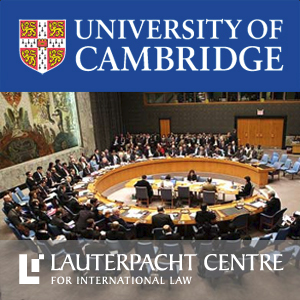'Cold War International Law' by Gerry Simpson
Duration: 33 mins 13 secs
Share this media item:
Embed this media item:
Embed this media item:
About this item

| Description: |
The Lauterpacht Centre for International Law (LCIL), University of Cambridge hosts a regular Friday lunchtime lecture series on key areas of International Law. Previous subjects have included UN peacekeeping operations, the advisory jurisdiction of the International Court of Justice, the crime of aggression, whaling, children and military tribunals, and theories and practices for proving individual responsibility criminal responsibility for genocide and crimes against humanity.
This lecture, entitled 'Cold War International Law', was delivered at the Lauterpacht Centre on Friday 7th October 2016 by Gerry Simpson, Professor of Public International Law at LSE. |
|---|
| Created: | 2016-10-13 15:24 |
|---|---|
| Collection: | LCIL International Law Seminar Series MOVED |
| Publisher: | University of Cambridge |
| Copyright: | University of Cambridge |
| Language: | eng (English) |
| Keywords: | International Law; Public International Law; International Criminal Law; International Relations; Cold War; |
| Abstract: | For two decades now, I have been reading books and listening to lectures in which (and working among international lawyers for whom) the Cold War is configured as absence or gap or excuse: a period of retrenchment sandwiched between highpoints of legal utopianism (San Francisco, Nuremberg 1945 (or Paris 1948); George Walker Bush’s “New World Order” in 1991, Boutros-Ghali’s Agenda for Peace in 1992). It seems a lot didn’t happen between 1948 and 1991. In particular, international law didn’t happen, or at least parts of it were somehow suspended. For lawyers, it was not so much an interregnum in which morbid symptoms arose but rather a period of frightening morbidity that produced an interregnum. In this paper, then, I will map out two international laws of the Cold War. In this first depiction, we have a law of absence. Here, international law is always on the fringes of something else: working, often unsuccessfully, against (or with) the something else (power, ideology, culture). The second thinks of law as constitutive of the Cold War, or, at least, co-implicated in it. The picture offered here is of the Cold War as heavily juridified, maybe even a legal event. |
|---|---|

